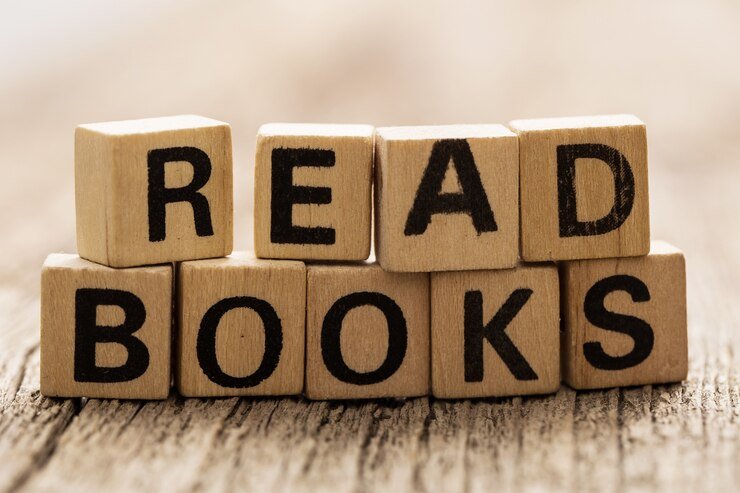A Beginner’s Guide to word plays

Word plays are more than just clever linguistic tricks; they are a testament to the beauty and complexity of language. Whether you’re a creative writer, a language enthusiast, or a blogger, word plays can enhance your writing, spark joy in your readers, and elevate your communication to new heights. In this blog post, we’ll explore the fascinating world of word plays, their importance, and how you can master the art of crafting them.
Introduction word plays
Words have power. They can entertain, educate, and evoke a range of emotions. One of the most delightful aspects of language is word play, which adds a layer of wit and creativity to our everyday conversations and writings. This blog post aims to introduce you to the world of word plays, explain their significance in language and literature, and provide practical tips for incorporating them into your own writing.
Word plays have been used by writers, poets, and comedians for centuries to add humor, depth, and charm to their work. From Shakespearean puns to modern-day memes, word plays continue to capture our imagination and bring a smile to our faces. But what exactly are word plays, and how can you use them effectively? Let’s find out.
Understanding Word Plays
Definition and Types of Word Plays
Word plays, also known as language play or wordplay, involve the clever and creative use of words to convey multiple meanings, create humor, or engage the audience. There are several types of word plays, each with its unique charm and purpose:
- Pun: A pun is a form of word play that exploits the multiple meanings of a word or similar-sounding words for humorous or rhetorical effect. For example, “Time flies like an arrow; fruit flies like a banana.”
- Double Entendre: A double entendre is a phrase or sentence that can be understood in two ways, often with one meaning being risqué or humorous. For example, “I used to be a baker, but I couldn’t make enough dough.”
- Spoonerism: A spoonerism involves swapping the initial sounds of two or more words to create a humorous effect. For example, “You have hissed all my mystery lectures” instead of “You have missed all my history lectures.”
Famous Examples in Literature and Everyday Life word plays
Word plays have been a favorite tool for writers and speakers throughout history. Here are a few famous examples:
- William Shakespeare: The Bard was a master of puns and word play. In “Romeo and Juliet,” he wrote, “Ask for me tomorrow, and you shall find me a grave man,” playing on the double meaning of “grave.”
- Oscar Wilde: In “The Importance of Being Earnest,” Wilde used word play to great effect, as seen in the line, “All women become like their mothers. That is their tragedy. No man does. That’s his.”
- Everyday Life: Word plays are not limited to literature; they are all around us. From witty bumper stickers to clever advertising slogans, word plays add humor and creativity to our daily interactions.
The Art of Crafting Word Plays
Tips for Creating Effective Word Plays
Creating effective word plays requires a keen sense of language and a playful mindset. Here are some tips to help you get started:
- Know Your Audience: Tailor your word plays to your audience’s preferences and level of understanding. What might be a hit with one group could fall flat with another.
- Play on Words with Multiple Meanings: Look for words with multiple meanings or homophones (words that sound the same but have different meanings) to create puns and double entendres.
- Keep It Simple: The best word plays are often the simplest. Aim for clarity and avoid overly complex constructions that might confuse your audience.
Importance of Context and Audience in Word Play Creation
Context is crucial when crafting word plays. A pun that works perfectly in one situation might be entirely inappropriate or misunderstood in another. Consider the setting, the medium, and the audience’s expectations when incorporating word plays into your writing.
For instance, a playful pun might be perfect for a word plays light-hearted blog post but completely out of place in a serious business report. Similarly, a double entendre that works well in a comedy sketch might not be suitable for a formal presentation. Always tailor your word play to fit the context and audience.
Word Plays in Marketing and Social Media

How Businesses Use Word Plays to Engage and Attract Attention
Word plays are a powerful tool in marketing and social media. They can make your message more memorable, evoke positive emotions, and encourage sharing. Here are some ways businesses use word plays to engage their audience:
- Slogans and Taglines: Clever make slogans and taglines more catchy and memorable. For example, KFC’s “Finger Lickin’ Good” plays on the sensory experience of eating their chicken.
- Social Media Posts: can make social media posts more engaging and shareable. A witty tweet or a pun-filled Instagram caption can attract attention and encourage interaction.
- Advertisements: in advertisements can create a lasting impression and make your brand stand out. For instance, a car dealership might use the slogan “Drive Away with a Deal” to attract customers.
Case Studies of Successful Word Plays in Advertising and Social Media Campaigns
Several brands have successfully used in their marketing campaigns. Let’s look at a few examples:
- Taco Bell: Taco Bell’s “Live Más” campaign effectively used word play to convey a message of living life to the fullest while enjoying their products. The slogan’s simplicity and dual-language appeal made it a hit.
- Snickers: The “You’re Not You When You’re Hungry” campaign featured humorous and puns to highlight the product’s ability to satisfy hunger. The campaign’s clever use of language resonated with audiences and became widely popular.
- Old Spice: Old Spice’s “Smell Like a Man, Man” campaign used word play to create a memorable and humorous tagline that emphasized the product’s masculine appeal. The playful language helped the campaign go viral.
Word Plays and SEO
Strategies for Incorporating Word Plays into Content for Enhanced SEO
Incorporating into your content can enhance SEO by making your writing more engaging and shareable. Here are some strategies to consider:
- Use Keywords Creatively: Integrate relevant keywords naturally into your. For example, if you’re targeting “Creative Writing Technique,” you might use a pun like “Write On Track” to include the keyword while adding a playful twist.
- Create Shareable Content: Word plays that evoke humor or surprise are more likely to be shared on social media, increasing your content’s reach and visibility.
- Optimize for Search Engines: Ensure your are still optimized for search engines by including relevant keywords and phrases. This balance between creativity and SEO can boost your content’s performance.
Tools and Resources for Finding and Creating Word Plays
Several tools and resources can help you discover and create word plays:
- RhymeZone: This online rhyming dictionary can help you find rhyming words and phrases, making it easier to create puns and other.
- Pun Generator: This tool generates puns based on your input, providing inspiration for creating.
- Thesaurus.com: A thesaurus can help you find synonyms and related words, expanding your vocabulary and enhancing your word play potential.
Conclusion
Word plays are a delightful and powerful way to enhance your writing and engage your audience. Whether you’re a creative writer, a language enthusiast, or a blogger, mastering the art of word play can add humor, depth, and charm to your work.
From puns and double entendres to spoonerisms and beyond, offer endless possibilities for creativity and connection. They can make your marketing campaigns more memorable, improve your SEO, and bring joy to your readers.




